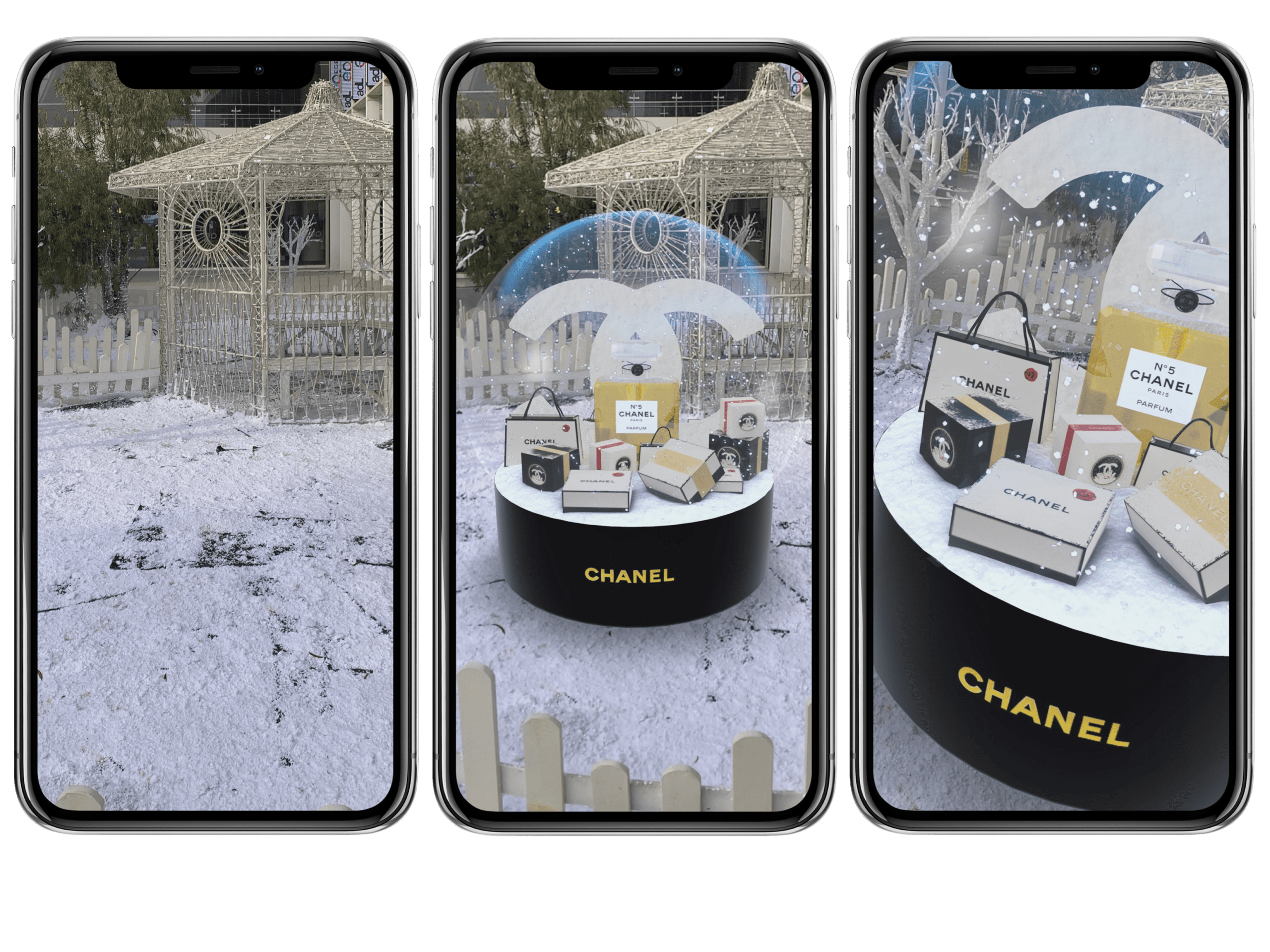Marketing is evolving rapidly, and augmented reality (AR) is leading the charge in transforming how brands engage with consumers. No longer limited to gaming or novelty applications, AR is becoming a key tool in experiential marketing, allowing businesses to create interactive, personalized, and immersive experiences that captivate audiences.
Brands across various industries—retail, fashion, automotive, entertainment, and even hospitality—are leveraging augmented reality to revolutionize the customer experience. Whether through virtual try-ons, interactive packaging, AR-powered advertisements, or immersive brand activations, AR allows consumers to engage with products and experiences in real-time like never before.
In this article, we’ll explore how brands will start using AR, highlight real-world examples, and discuss how Towerhouse Global can help businesses integrate AR into their experiential marketing and live event strategies.
1. Why Brands Are Investing in Augmented Reality
The Shift Toward Immersive Brand Experiences
Consumers are no longer satisfied with traditional digital marketing methods. They expect engagement, interactivity, and personalization—something that static ads and generic promotions fail to deliver.
📌 Why AR is Changing the Game for Brands:
✔ Transforms passive advertising into interactive experiences.
✔ Bridges the gap between online and in-person shopping.
✔ Increases brand engagement and customer retention.
✔ Encourages user-generated content and social media sharing.
How Towerhouse Global Can Help:
We specialize in creating immersive AR-powered marketing campaigns, live events, and digital experiences that bring brands to life.
2. How Brands Will Start Using Augmented Reality
- AR-Powered Virtual Try-Ons & Product Previews
📌 Why It Matters:
- Consumers want to visualize products before purchasing, and AR allows them to do this seamlessly.
- AR-powered try-ons help customers make more confident buying decisions, reducing return rates and boosting sales.
📌 Example:
- Gucci’s AR Sneaker Try-On – Gucci partnered with Snapchat to allow users to try on sneakers using AR and purchase them instantly through the app.
✔ Why This Works:
✅ Increases conversions by offering a real-time visualization of products.
✅ Makes online shopping more interactive and engaging.
✅ Encourages customers to share their experiences on social media.
How Towerhouse Global Helps:
We design AR-powered e-commerce experiences and virtual try-on solutions to enhance customer engagement and sales.
- Interactive AR Advertising & Social Media Filters
📌 Why It Matters:
- Traditional advertising is becoming less effective due to ad fatigue and banner blindness.
- AR-powered ads create interactive, gamified experiences that drive consumer engagement.
📌 Example:
- Coca-Cola’s AR Holiday Campaign – Coca-Cola used AR-enhanced packaging that allowed customers to scan their Coke bottles and unlock animated holiday messages and experiences.
✔ Why This Works:
✅ Encourages brand interaction and storytelling.
✅ Creates shareable, viral marketing moments.
✅ Turns packaging into an interactive customer touchpoint.
How Towerhouse Global Helps:
We create custom AR-powered social media activations, branded filters, and interactive ad experiences that elevate brand engagement.
- AR in Retail & In-Store Experiences
📌 Why It Matters:
- Retail brands are using AR to enhance the in-store shopping experience, making it more immersive and informative.
- AR allows customers to scan products and receive instant information, reviews, or personalized recommendations.
📌 Example:
- IKEA Place App – IKEA’s AR app lets customers visualize how furniture will look in their homes before purchasing.
✔ Why This Works:
✅ Blends online and in-store shopping experiences.
✅ Enhances product discovery and reduces purchase hesitation.
✅ Encourages more informed buying decisions.
How Towerhouse Global Helps:
We develop AR-powered in-store experiences that allow brands to engage with customers in innovative ways.
- Augmented Reality in Live Events & Experiential Marketing
📌 Why It Matters:
- Live events and brand activations are prime opportunities for AR-enhanced experiences.
- AR creates gamified experiences, interactive brand storytelling, and engaging digital overlays for live audiences.
📌 Example:
- Pepsi Max’s AR Bus Stop Campaign – Pepsi transformed a regular bus stop into an AR-powered experience, surprising pedestrians with lifelike digital illusions.
✔ Why This Works:
✅ Turns everyday locations into interactive brand moments.
✅ Encourages user participation and social sharing.
✅ Creates viral brand activations that drive media attention.
How Towerhouse Global Helps:
We produce AR-powered live events and experiential activations that make brand interactions unforgettable.
- AR for Gamification & Brand Loyalty Programs
📌 Why It Matters:
- AR-powered games and challenges encourage customer engagement and brand loyalty.
- Brands use AR scavenger hunts, interactive loyalty programs, and gamified experiences to drive participation.
📌 Example:
- Nike’s AR Scavenger Hunt – Nike used AR-powered challenges to engage customers and drive foot traffic to retail locations.
✔ Why This Works:
✅ Increases customer engagement and participation.
✅ Encourages brand interaction beyond a single transaction.
✅ Enhances customer loyalty with gamified experiences.
How Towerhouse Global Helps:
We design AR-powered gamification campaigns that drive engagement, brand loyalty, and customer retention.
3. The Future of Augmented Reality in Marketing
📌 Upcoming AR Trends to Watch:
✔ AI-Powered AR Experiences – Personalizing brand interactions based on consumer preferences.
✔ Metaverse & AR Commerce – Creating virtual storefronts and interactive digital shopping experiences.
✔ Wearable AR Technology – Smart glasses and headsets will make hands-free AR marketing mainstream.
✔ Location-Based AR Advertising – Brands will use AR-powered billboards and outdoor experiences to interact with consumers in real-time.
📌 Example:
- Ray-Ban & Meta Smart Glasses – These AR-powered glasses allow users to interact with digital overlays in real time.
✔ Why This Matters:
✅ Brands that adopt AR early will gain a competitive advantage.
✅ Immersive experiences increase brand recall and engagement.
✅ AR-powered marketing will become an industry standard.
4. How Towerhouse Global Can Help Brands Implement AR in Marketing
📌 Our Augmented Reality Services:
✔ AR-Powered E-Commerce & Retail Experiences – Enhancing shopping with virtual try-ons and 3D product visualizations.
✔ Live Event & Experiential AR Activations – Blending physical and digital experiences to engage audiences.
✔ Social Media AR Campaigns & Filters – Creating branded AR lenses for TikTok, Instagram, and Snapchat.
✔ Gamified AR Experiences – Developing interactive brand challenges and loyalty-based AR activations.
📩 Contact Towerhouse Global today to develop a high-impact AR marketing campaign that captivates audiences and transforms brand engagement! 🚀
Final Thoughts: The Future of Marketing is Augmented
✔ Augmented reality is revolutionizing how brands engage with consumers.
✔ Experiential marketing powered by AR creates deeper customer connections.
✔ Brands that embrace AR will set themselves apart in the digital landscape.
At Towerhouse Global, we specialize in:
✅ Developing immersive AR-powered marketing campaigns.
✅ Enhancing digital and live brand experiences with cutting-edge AR technology.
✅ Creating unforgettable consumer interactions that drive engagement and sales.
Ready to elevate your marketing strategy? Contact Towerhouse Global today!






